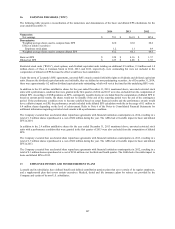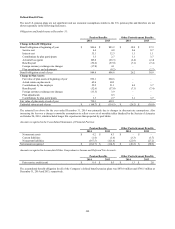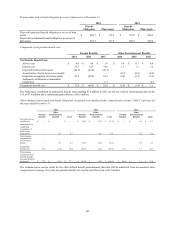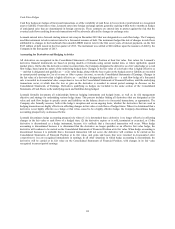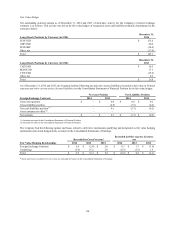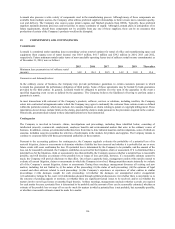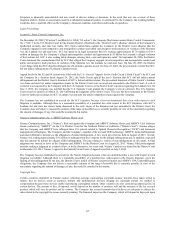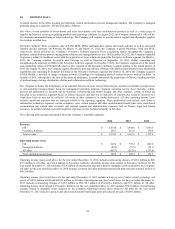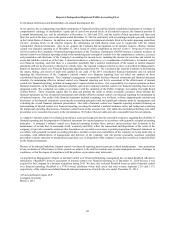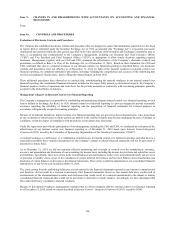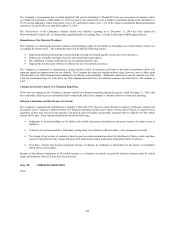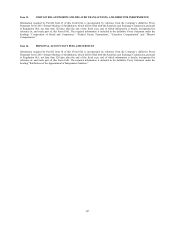Lexmark 2014 Annual Report Download - page 121
Download and view the complete annual report
Please find page 121 of the 2014 Lexmark annual report below. You can navigate through the pages in the report by either clicking on the pages listed below, or by using the keyword search tool below to find specific information within the annual report.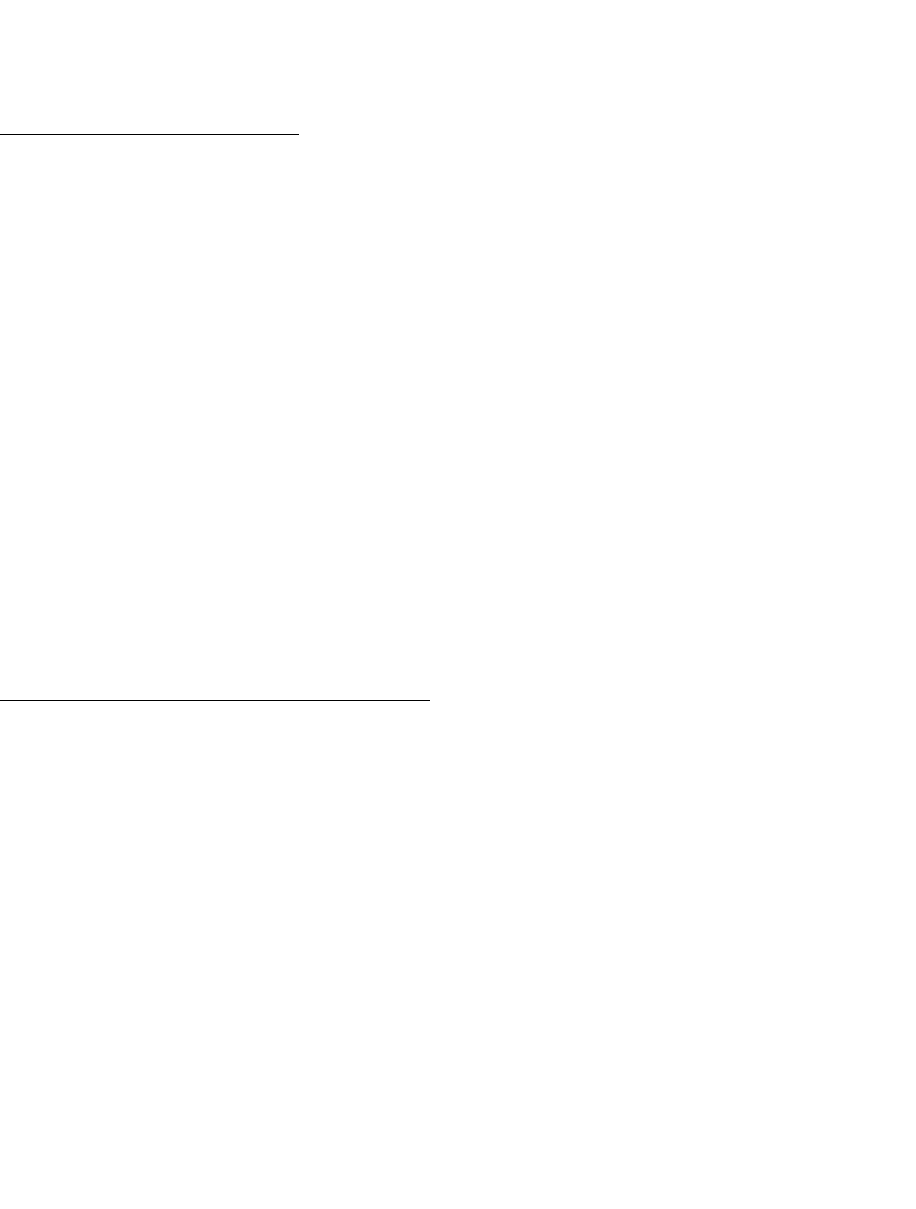
Litigation is inherently unpredictable and may result in adverse rulings or decisions. In the event that any one or more of these
litigation matters, claims or assessments result in a substantial judgment against, or settlement by, the Company, the resulting liability
could also have a material effect on the Company’s financial condition, cash flows and results of operations.
Legal Proceedings
Lexmark v. Static Control Components, Inc.
On December 30, 2002 (“02 action”) and March 16, 2004 (“04 action”), the Company filed claims against Static Control Components,
Inc. (“SCC”) in the U.S. District Court for the Eastern District of Kentucky (the “District Court”) alleging violation of the Company’s
intellectual property and state law rights. SCC filed counterclaims against the Company in the District Court alleging that the
Company engaged in anti-competitive and monopolistic conduct and unfair and deceptive trade practices in violation of the Sherman
Act, the Lanham Act and state laws. SCC has stated in its legal documents that it is seeking approximately $17.8 million to $19.5
million in damages for the Company’s alleged anticompetitive conduct and approximately $1 billion for Lexmark’s alleged violation
of the Lanham Act. SCC is also seeking treble damages, attorney fees, costs and injunctive relief. On September 28, 2006, the District
Court dismissed the counterclaims filed by SCC that alleged the Company engaged in anti-competitive and monopolistic conduct and
unfair and deceptive trade practices in violation of the Sherman Act, the Lanham Act and state laws. On June 20, 2007, the District
Court Judge ruled that SCC directly infringed one of Lexmark’s patents-in-suit. On June 22, 2007, the jury returned a verdict that SCC
did not induce infringement of Lexmark’s patents-in-suit.
Appeal briefs for the 02 and 04 actions were filed with the U.S. Court of Appeals for the Sixth Circuit (“Sixth Circuit”) by SCC and
the Company. In a decision dated August 29, 2012, the Sixth Circuit upheld the jury’s decision that SCC did not induce patent
infringement and the District Court’s dismissal of SCC’s federal antitrust claims. The procedural dismissal of Static Control’s Lanham
Act claim and state law unfair competition claims by the District Court were reversed and remanded to the District Court. A writ of
certiorari was requested by the Company with the U.S. Supreme Court over the Sixth Circuit’s decision regarding the Lanham Act. On
June 3, 2013, the Company was notified that the U.S. Supreme Court granted the Company’s writ of certiorari. The U.S. Supreme
Court issued its opinion on March 25, 2014 affirming the judgment of the Sixth Circuit. The case has been remanded to the District
Court for further proceedings on SCC’s Lanham Act and state law unfair competition claims against the Company.
The Company has not established an accrual for the SCC litigation, because it has not determined that a loss with respect to such
litigation is probable. Although there is a reasonable possibility of a potential loss with respect to the SCC litigation, with SCC’s
Lanham Act and state law claims being dismissed in the early stages of the litigation and just remanded to the District Court, the
Company does not believe a reasonable estimate of the range of possible loss is currently possible in view of the uncertainty regarding
the amount of damages, if any, that could be awarded in this matter.
Nuance Communications, Inc. v. ABBYY Software House, et al.
Nuance Communications, Inc. (“Nuance”) filed suit against the Company and ABBYY Software House and ABBYY USA Software
House (collectively “ABBYY”) in the U.S. District Court for the Northern District of California (“District Court”). Nuance alleges
that the Company and ABBYY have infringed three U.S. patents related to Optical Character Recognition (“OCR”) and document
management technologies. The Company, and the Company’s supplier of the accused OCR technology, ABBYY, denied infringement
and raised affirmative defenses to the allegations of patent infringement. A two week jury trial was held in August of 2013. At trial,
Nuance was seeking approximately $31 million in damages from the Company for the alleged infringement and, in addition, requested
that this amount be trebled for alleged willful infringement. The jury returned a verdict of non-infringement on all counts. A final
judgment was entered in favor of the Company and ABBYY by the District Court on August 26, 2013. Nuance filed post-judgment
motions seeking a judgment as a matter of law, or in the alternative, for a new trial. Nuance’s motion was denied by the District Court
on December 10, 2013. Nuance’s appeal to the Federal Circuit Court of Appeals was filed on July 2, 2014.
The Company has not established an accrual for the Nuance litigation because it has not determined that a loss with respect to such
litigation is probable. Although there is a reasonable possibility of a potential loss with respect to the Nuance litigation, given the
finding of non-infringement by the jury, the District Court’s denial of Nuance’s post-trial motion and ABBYY USA’s indemnification
obligations, the Company does not believe a reasonable estimate of the range of possible loss is currently possible in view of the
uncertainty regarding the amount of damages, if any, that could be awarded in this matter.
Copyright Fees
Certain countries (primarily in Europe) and/or collecting societies representing copyright owners’ interests have taken action to
impose fees on devices (such as scanners, printers and multifunction devices) alleging the copyright owners are entitled to
compensation because these devices enable reproducing copyrighted content. Other countries are also considering imposing fees on
certain devices. The amount of fees, if imposed, would depend on the number of products sold and the amounts of the fee on each
product, which will vary by product and by country. The Company has accrued amounts that it believes are adequate to address the
risks related to the copyright fee issues currently pending. The financial impact on the Company, which will depend in large part upon
117


